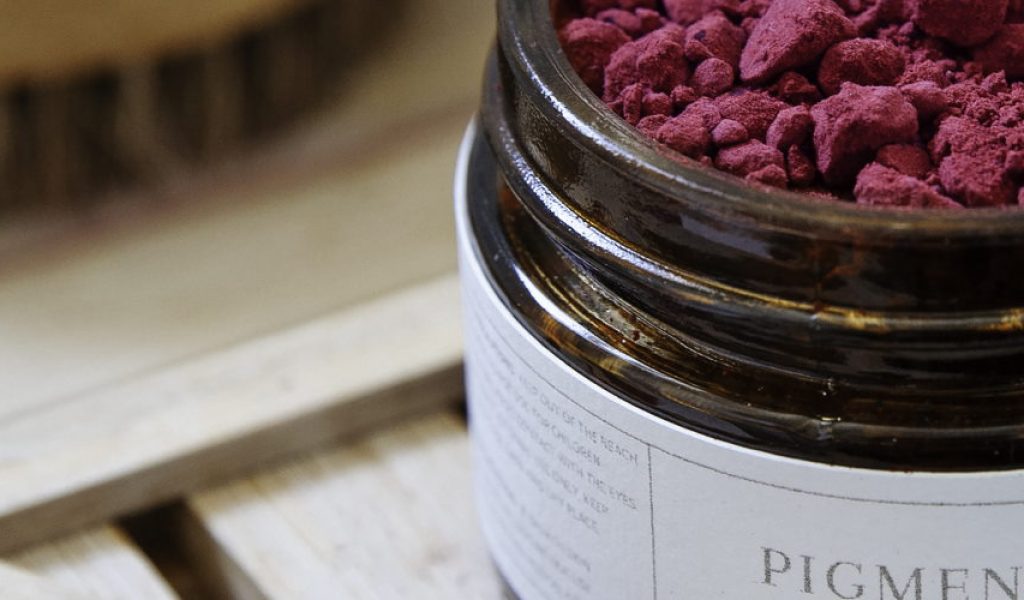




Ingredient Benefits

Benefits of Argan Oil
Rich in Vitamin E, Vitamin A and fatty acids, Argan Oil has long been popular for use on skin and hair in the Middle East and Africa, where the Argania Spinosa tree, which produces the seeds from which the oil is extracted, is grown.
Traditionally, the oil has been celebrated for its anti-ageing properties, as well as for its ability to treat dry, cracked, or dehydrated skin. Being rich in antioxidants, it’s been used to promote the healing of wounds – and, because it is so moisturising, it’s also thought to have a positive impact on hair condition, as well as on scalp irritation. It’s often also used to protect hair from heat damage (for example, from blow drying, or straighteners) as well as to reduce frizz.

Benefits of Apricot Kernel Oil
Apricot oil is naturally high in Vitamins E and A, which is thought to make it useful in improving skin tone, promoting elasticity, and reducing the appearance of fine lines. It also contains fatty omega acids, which have traditionally been used to promote softness and suppleness. And, although it may seem counter-intuitive to use oil in the treatment of acne-prone skin, apricot oil is comparatively light and its Vitamin A content may help to de-clog pores, leading to clearer skin.

Benefits of Fractionated Coconut Oil
When it comes to coconut oil, the word ‘fractionated’ means that the original product has been through a process that retains the fatty acids thought to be of greatest benefit, and removes the others. Fractionated coconut oil is lighter than virgin oil, and is therefore more readily absorbed by the skin, with less danger of clogging the pores.
As with many oils, fractionated coconut oil can be added harmlessly to cooking, and may even help with feelings of satiety, thus promoting weight loss. Direct application to skin and hair has other reported benefits, such as softening and soothing the skin, as well as reducing the appearance of stretch marks.

Benefits of Jojoba Oil
Jojoba oil is thought to have a myriad uses for hair, face and body. Because it is a relatively light oil, rich in Vitamins E and A, it can be used to moisturise and hydrate dry or irritated skin without blocking pores. It also contains iodine, which helps to fight bacteria – so Jojoba Oil may even be useful in preventing breakouts. It’s also thought that, because it is rich in antioxidants, Jojoba Oil may assist the body in producing collagen, which adds to a supple, youthful appearance. Furthermore, its rich moisturising properties mean that Jojoba Oil can be used to condition hair and repair or prevent split ends, as well to soothe and soften cuticles.

Benefits of Dead Sea Salt
Dead Sea Salt was used for its supposed health-giving properties by the Ancient Egyptians; indeed, Cleopatra is thought to have been an ardent proponent of its uses. At a chemical level, it is packed with minerals such as magnesium, calcium, sodium, zinc, potassium, and sulphur, all of which can be useful in promoting skin health and appearance – for example, zinc and magnesium both help to heal damaged or irritated skin, while potassium assists with moisture retention, and sulphur can help to unblock pores. The combination of minerals found in Dead Sea salt are also thought to eliminate free radicals, which in turn slows down cell oxidation and promotes a more glowing complexion.
It’s not only for aesthetic purposes that Dead Sea salt is highly regarded: it may also be used to soothe aches and pains. When added to the bath, it is believed to relieve swelling, cramps and soreness – and its gently abrasive texture means that it can also be used as a face or body or scrub.

Benefits of Epsom Salt
Like Dead Sea Salt, Epsom Salt is a popular remedy for bodily aches and pains. It is derived from a spring in Epsom, UK and is a mineral compound of sulfate – not actually salt at all. The health benefits of Epsom Salt have long been celebrated, with some studies suggesting that both magnesium and sulfate can be absorbed through the skin. Magnesium, in particular, is thought to ease pain and inflammation, as well as to help the body with the elimination of toxins. Epsom Salt is also believed to have a number of beauty uses, such as exfoliation, pore cleansing and the removal of rough skin.

Benefits of Magnesium Flakes
There are a number of reasons why people might be deficient in magnesium – some to do with the soil conditions in which food is grown and others related to diet and the body’s ability to absorb the mineral. Yet magnesium plays a vital role in hundreds of bodily functions, ranging from energy production to bone health and blood pressure.
Some research has indicated that magnesium can be absorbed through the skin, which makes it a useful addition to the bath, where it is thought to promote relaxation and rest, as well as easing muscular pain and inflammation. Because magnesium can help to restore muscle function and replenish electrolytes, Magnesium Flakes are often advised for use after exercise or other heavy activity, when the body is fatigued and dehydrated. Perhaps because of these reported restorative qualities, Magnesium Flakes are also believed to improve mood and to lower anxiety.
Although Epsom Salt is also high in magnesium, the compound is different in that Magnesium Flakes contain chloride, whereas Epsom salt contains sulfate, which can sometimes be irritating to the skin – making Magnesium flakes a better choice for babies or those with sensitive skin.

Benefits of Rose Essential Oil
Roses are so widely considered to be such beautiful flowers that it’s perhaps unsurprising to learn they’re also believed to have qualities capable of enhancing human beauty. Cultivated for aesthetic purposes since antiquity, oil extracted from roses can moisturise the skin, and is thought to also nourish and soothe, as well as containing nutrients, which can aid healing. Rose oil is also believed to assist with the reduction of scarring, as well as the amelioration of pain, cramps and convulsions.
Studies have suggested that rose oil can help to ease anxiety and depression, as well as to promote relaxation. Rose oil is also believed to have aphrodisiacal qualities, which may help people to feel more attractive, and to feel more attraction towards others.

Benefits of Peppermint Essential Oil
With its fresh, enlivening aroma, peppermint oil’s benefits have been recognised across cultures and millennia – from ancient Egypt and Greek mythology to Japanese and Chinese folk medicine. It’s often used to ease stomach discomfort – which is why many people opt for mint tea after a meal – and is also thought to be useful in unblocking and soothing the sinuses and respiratory tract. Additionally, it’s believed to aid mental function, contributing to alertness and memory retention.
When applied topically, Peppermint oil is also believed to ease aching muscles, thanks to its cooling and astringent proprieties – so it may be a positive addition to the bath after a workout, or when stress has contributed to bodily discomfort and headache. It’s also thought to alleviate scalp and skin itchiness, as well as to promote hair growth and condition, and skin complaints such as oiliness, sunburn and inflammation.

Benefits of Lavender Essential Oil
One of the most popular essential oils on the market is Lavender Oil – and small wonder, since it is incredibly versatile, as well as possessing a lovely scent. Because it’s thought to possess antibacterial and anti-inflammatory properties, it’s often used for skin issues ranging from blemishes, irritation, and dryness to wrinkles, age spots and fungal infections. It may also be useful in promoting scalp health and hair growth.
As well as its benefits for skin and hair, lavender’s scent is commonly used to reduce stress, boost mood, and promote relaxation, calm, rest, and sleep. It’s also thought to reduce the pain caused by headaches and migraines.

Benefits of Melissa Essential Oil
Oil extracted from the Melissa plant, native to the Mediterranean region, is thought to have a range of benefits to both mind and body. Known as ‘The Elixir of Life’ as far back as the 15th century, its pleasant aroma was believed to have a mood-lifting effect, which could contribute to the healthy functioning of the nervous system, and ward off depression and anxiety. In the past, it was even used to help soldiers deal with the stress of battle.
As part of this ability to soothe and relax, melissa has traditionally been used to relieve muscle aches and spasms, including those related to menstruation. It’s also believed to boost the immune and digestive systems, relieving bloating and cramps, as well as promoting general wellbeing. With its antibacterial properties, melissa oil is also thought to be useful in fighting infections, as well as reducing fever and lowering blood pressure.

Benefits of Eucalyptus Essential Oil
First used by the Australian Aboriginals, eucalyptus oil is extracted from the leaves of the eucalyptus tree and has traditionally been used to treat fever, as well as the associated aches and pains. Thought to be a natural antiseptic, eucalyptus oil is frequently used to treat redness and pain, and fight viruses, as well as to promote the healing of wounds.
One of the purposes for which eucalyptus is most celebrated is its ability to combat problems of a respiratory nature – which is why it’s an ingredient often found in cold and flu remedies. Studies have shown it to ease congestion and sinus pressure, as well as to lower fever and relieve a sore throat, thanks to its antibacterial properties – which may also promote healing of wounds, sunburn, insect bites and acne.
Because of its anti-inflammatory properties, eucalyptus oil is frequently used to alleviate muscle aches and stiffness, particularly after exercise. It’s also thought to reduce the swelling and discomfort caused by conditions such as arthritis, as well as to boost hair and scalp health.
With its sharp, lively scent, eucalyptus oil may also help to reduce stress, boost mood and clear mental fatigue, aiding concentration.

Benefits of Black Pepper Essential Oil
So much more than a tasty addition to a meal: the essential oil extracted from black pepper is thought to have medicinal uses, ranging from boosting circulation, lowering cholesterol and relieving pain, to aiding digestion and lowering blood pressure. It’s also thought to reduce anxiety, as well as to lessen cravings for stimulants such as cigarettes. Black pepper is thought to have detoxifying properties, and some research has indicated that it may boost liver function and improve glucose tolerance.

Benefits of Green Tea
With origins dating back more than 5000 years, green tea has long been celebrated for a variety of health-giving properties. Because it contains antioxidants – including polyphenols, which are believed to ward off disease – green tea is generally thought to be a valuable addition to the diet and may even boost metabolic function and fat burning.
Because green tea contains natural stimulants such as caffeine (although in lesser quantities than black tea or coffee) it is believed to boost memory and focus. It may also assist with firing up the metabolism and burning fat, as well as managing cholesterol.

Benefits of Chamomile Tea
Because it is rich in polyphenols, chamomile is thought to have healing properties that benefit hair and skin. Its antioxidant qualities are believed to slow the signs of ageing, as well as to reverse skin damage that’s already occurred – and, because chamomile also has anti-inflammatory qualities it may also help with acne, pain, swelling and redness, as well as eczema, psoriasis, wound healing and the reduction of dark under-eye circles.
Chamomile tea is also used to promote calm and relaxation, as well as to help with falling asleep. It may also relieve digestive discomfort.

Benefits of Mint Tea
Peppermint tea was used medicinally by the ancient Greeks, Romans and Egyptians. It contains menthol, which acts as a muscle relaxant, and is also thought to have an impact on the brain’s GABA receptors, which may make it useful in relieving stress and boosting mood. Menthol is also thought to have antiseptic and antibacterial qualities, which can aid digestion, promote wound healing and freshen breath, as well as soothing skin issues such as clogged pores, acne and dryness. Peppermint tea may also alleviate headaches and lower blood pressure, thanks to its muscle relaxing qualities.

Benefits of Rose Petal Tea
High in Vitamin C, rose petal tea may help to fight off free radicals, which can cause damage to skin cells and contribute to signs of premature ageing. Antibacterial properties mean that rose petal tea may also help with skin complaints such as acne and inflammation, as well as reducing redness and clarifying pores. Rose is also high in antioxidants, which may make it useful for easing complaints such as poor digestion. Of course, roses are also known for their beautiful scent, and it’s thought that rose petal tea can uplift the senses, soothe the mind and calm anxious thoughts.

Benefits of Lavender Tea
High in Vitamin C, which can help to support the immune system, lavender has been used medicinally for centuries. Its calming scent has also been harnessed as a form of alternative medicine, used to promote rest and relaxation, as well to combat problems of sleeplessness. Lavender tea may also aid digestion, as well as ease muscle aches and pains. Because lavender has anti-inflammatory and anti-fungal properties, it may also be useful in boosting skin health, reducing redness, soothing irritation, and detoxifying and toning the skin. It’s also believed to increase circulation, which may have an impact on hair health, not only reducing dryness and dandruff, but also hair loss.












